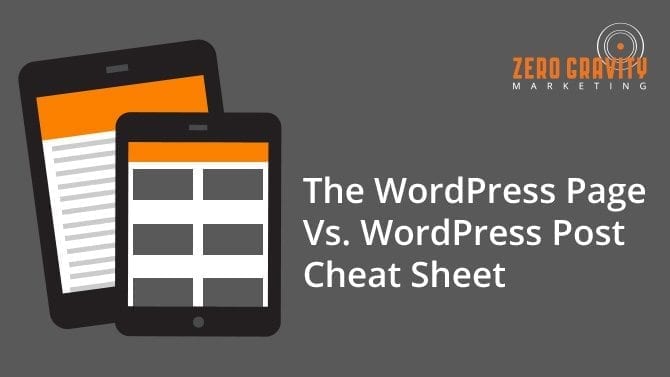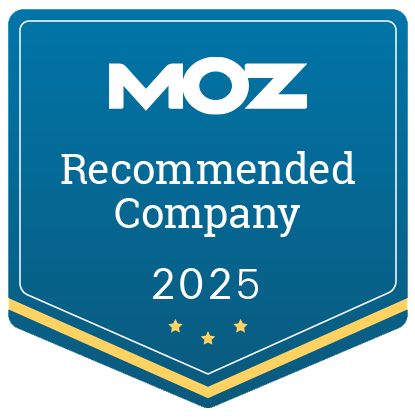
WordPress Page Vs. WordPress Post Cheat Sheet
When any WordPress newbie begins creating their website, the first thing they have to do is add content. WordPress only offers two content options—pages and posts but doesn’t make it explicably clear what each one is for. So without further ado, here are the key differences between a WordPress page and a WordPress post:
Evergreen Content vs. Relevant Content
Perhaps the most obvious way to explain the difference between a WordPress page and a WordPress post is to give you an example. A WordPress page is a part of your site that rarely changes. You put it up when you set up your website and the content will be just as accurate in five years as it is today. The about us page, services page, and homepage are all perfect examples of this (and to help you out, they even have page in the name). Of course, sometimes this content requires changes, like if you alter your fees or your services, but most of the time, you don’t edit it.
On the contrary, a WordPress post is all about relevancy. Your posts are displayed with the most recent one showing first, and as you get more of them, they are archived by the month and year. The older a WordPress post gets, the harder a user has to work to locate it. The best example of a WordPress post is a blog article—or blog post. See, we’re making it easy here.
Not Social vs. Very Social
Due to the nature of its content, a WordPress page does not have a comment section or social media share buttons. It is strictly there to inform your audience about what you are all about. A WordPress post, on the other hand, is extremely social. You want everyone talking about your posts. You want them to be shared on social media and you want your readers to leave you comments and start conversations.
Hierarchies vs. Categories/Tags
Another huge difference between a WordPress page and a WordPress post is how you organize them. WordPress pages can be organized using hierarchies, such as the about us page as the main page, and then a subpage with each employee’s bio. When it comes to WordPress posts, your only option for organization is to use categories and tags to make your posts easily searchable by your audience. They will always be displayed in reverse chronological order by default.
Customization vs. Standardization
The last major difference between a WordPress page and a WordPress post is the design options. A WordPress page allows you to create a custom template to make the layout more unique; however, a WordPress post sticks to the same template every time for consistency.
The best part of all is that WordPress pages and WordPress posts are limitless, and they both have very important jobs when it comes to growing your online presence. Both of them are equally relevant to your SEO strategy and both of them will help you engage and convert your visitors.
If you have any questions about a WordPress page versus a WordPress post, contact Zero Gravity Marketing. Not only can we show you the difference, we can help you design your website to capitalize on the key features of each one.








